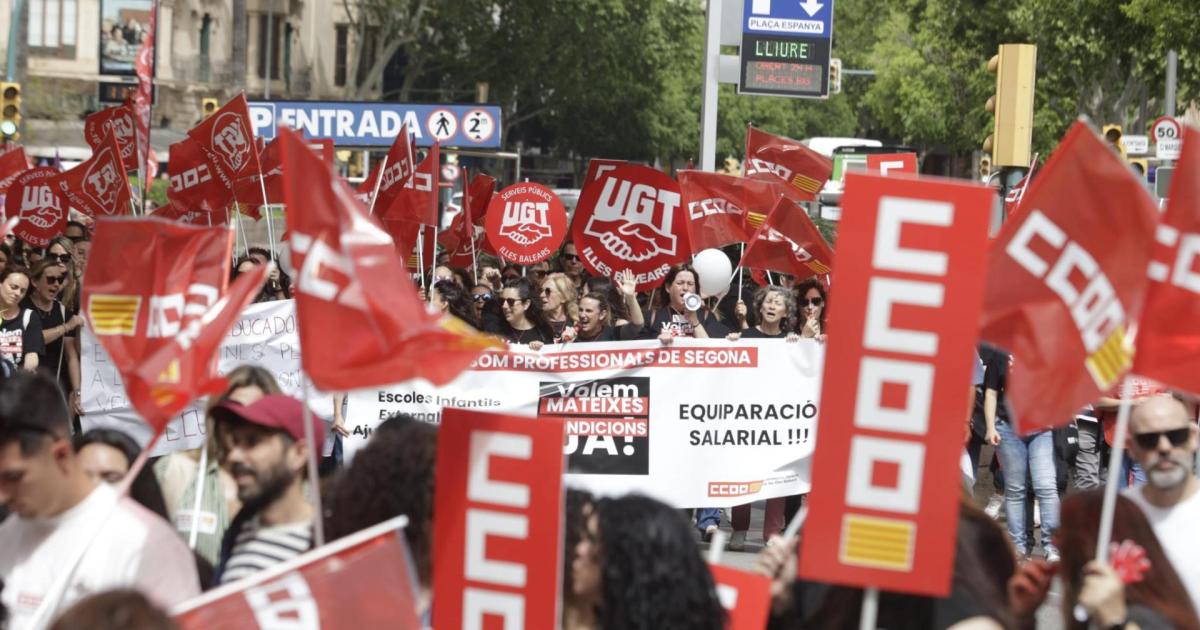By Andrew Ede
José García Relucio, general secretary of the UGT union’s services federation in the Balearics, believes that the threatened protest at Palma Airport, which would have involved blocking access points, was decisive in making the breakthrough in negotiations for the hospitality industry collective bargaining agreement.
“It was one of the toughest decisions we have made, but also the most important. When people talk about blocking the airport, everyone gets anxious. Our people were very angry. Either we sorted it out, or we would have called a strike for all of July and August.”
The agreement for a 13.5% pay increase over three years – a pre-agreement in fact, as it is due to be formally signed this coming week – was the result of a private meeting between García and the president of the Mallorca Hoteliers Federation, Javier Vich.
“Our personal relationship has always been good. I told him if you want this to continue, it will continue. Some were being stingy and others irresponsible, and they were about to leave 180,000 workers without a pay rise and better conditions. The stingy ones were the employers, and the irresponsible ones were the other union (the CCOO). We couldn’t keep calling meetings without proposing anything. The UGT called the strike, and all the proposals on the table were ours.”
Between them, the UGT and the federation hold a majority at the negotiating table, but García denies that the pre-agreement with Vich is an imposition. “The important thing is that we all come together. The beneficiaries of the agreement are not the unions, but the workers in the sector.”
The restaurant and nightlife employers’ associations have said they will not sign the agreement and that the 13.5% increase is unacceptable. For García this is odd. “The CAEB Restaurants Association proposed a five-year agreement and a 22% increase, which we would have gladly signed. Now they say they can’t afford to accept a 13.5% increase over three years and that they weren’t included in decisions, even though they were aware of everything.” As to there being a specific agreement for the restaurant sector, García is clear: “No way. It’s not something we’re even considering.”
García disputes the claim made by his counterpart at the CCOO, Héctor Gómez, that the CCOO would have got a better deal. “I don’t know what he’s referring to. They’ve gone six months without proposing anything. We’ve achieved a minimum wage of over €1,900 for kitchen assistants and cleaners, a higher employment guarantee for temporary workers, and protection against cuts in sick leave, among other things. The same person who negotiated here on behalf of the CCOO signed a national restaurants agreement with 2% wage increases, while here we’ve achieved more than 15% cumulatively. What improvements is he talking about?”
The restaurants and nightlife employers say they won’t sign the agreement. If this is the case, will it have been a failure? “It will be a failure for anyone who doesn’t sign the best agreement in Spain.”
